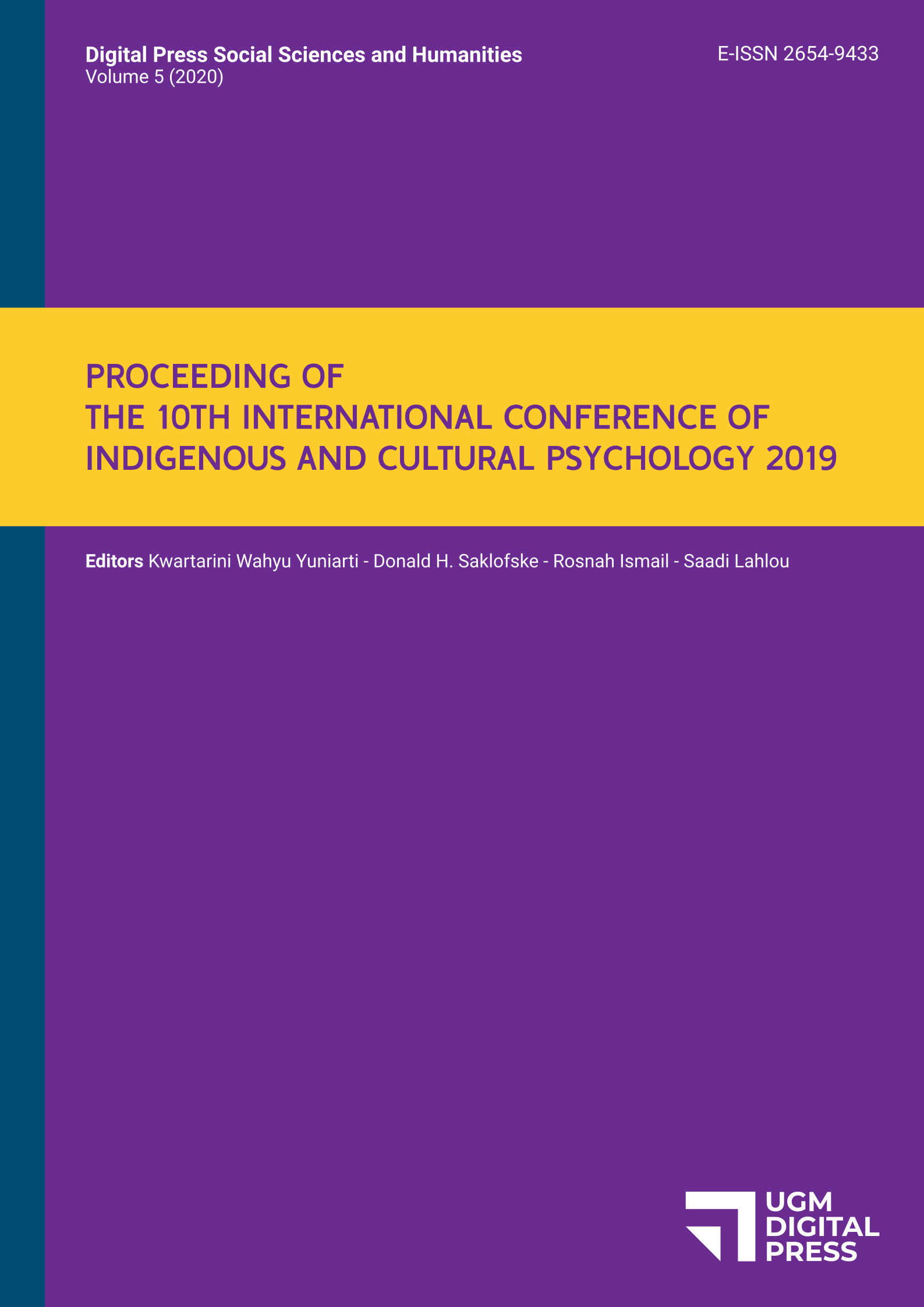Instilling Religious Knowledge and Practice as A Way to Prevent Deprivation among Parmalim People as An Indigenous Religious Minority Group in Indonesia
Niesya Ridhania Harahap
, Irmawati
Social Psychology Department, Faculty of Psychology, University of Sumatera Utara 20155 Dr. T. Mansyur Number 7, Indonesia
13069nrh@gmail.com
Abstract
Parmalim is an indigenous religion from the ancient Toba Batak and has been categorized by the government as one of the “local” religions in Indonesia. They have been struggling to keep their community accepted among society. Furthermore, they often made comparisons between their group situation with other “formal” religious groups in terms of the institutional treatment regarding their civil data administration, the religious studies in the school, the building progress of the worship house, and their job opportunities. This study aims to present the descriptive result of the impact of instilling religious knowledge and practice as a way to prevent group relative deprivation among Parmalim people in Medan using a descriptive qualitative method. The Relative Deprivation theory was arranged from (Smith et al., 2014) theory using three components of RD, such as cognitive comparison, cognitive appraisal, and justice-related effect. The religious knowledge and practice are divided into Parmalim core values and customs such as Tona (Religious teaching), Poda (Commandement), Patik (Canon), and Uhum (Law). The result of this study had shown that Parmalim people in Medan possessed low group relative deprivation as an impact of the religious knowledge and practice that have been instilled among them.
Keywords
group relative deprivation, indigenous religion, Medan, Parmalim, religious knowledge and practice
References
13069nrh@gmail.com

